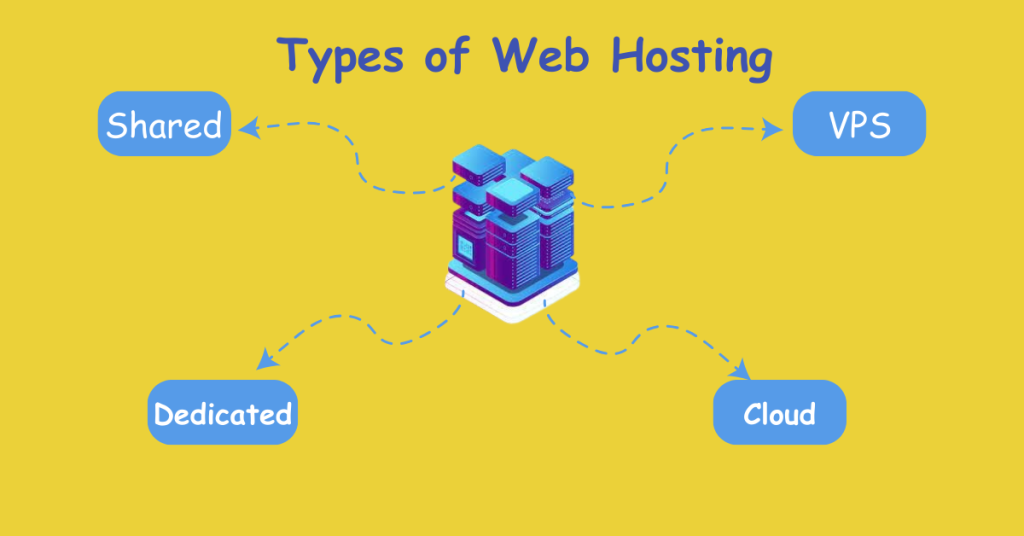The primary question on everyone’s mind is, “How to choose right web hosting plan?”
Finding an ideal web hosting plan that perfectly meets your needs might be challenging.
Imagine a website that loads faster than a cheetah, is more secure than Fort Knox, and is as reliable as a sunrise. Sounds like dreamy,
Don’t worry, would-be aspiring website owners; this guide will help you choose the right web hosting plan.
How to Choose Right Web Hosting Plan: Transforming Your Online Dream into a Reality
Understanding Your Needs
Identifying Your Website’s Purpose
You must know what type of website you want to create, like a website for e-commerce, blogging, business, or a portfolio.
Tailor your hosting plan accordingly to ensure optimal performance, uptime, support, and resource allocation.
“For example, if you are a beginner, then shared hosting is the right option for you.”
Analyzing Traffic Expectations
Expect growth by keeping your website’s niche in mind. Choose the right scalable web hosting plan to accommodate increasing traffic without compromising speed, support, or reliability.
Budget Considerations
It is important to balance features and costs when choosing a web hosting plan.
Before choosing any hosting plan, you need to keep your budget in mind and seek web hosting plans that truly offer the best value without sacrificing essential functionalities, features, and performance.
Check if the HostBet hosting plans align with your website’s needs in terms of storage, bandwidth, and features. Also, explore Hostbet’s uptime guarantee, customer support, and reviews to ensure a positive experience. HostBet is currently offering a 20% discount for new users . We are sure you will like it.
Understanding the Types of Web Hosting

Shared Hosting
The first and most usable type of web hosting. Multiple websites hosted on the same server use resources.
Shared hosting is an affordable and excellent option for small websites and beginner bloggers with low traffic.
Pros: cost-effective, easy to use for beginners.
Cons: limited resources; potential performance issues if other sites on the server use too many resources.
Virtual Private Server (VPS) Hosting
VPS is an advanced version of shared hosting with more dedicated resources than shared hosting.
A physical server is partitioned into multiple virtual servers, each with its own dedicated resources. VPS is an ideal solution for growing websites.
Pros: More control and customization; better performance compared to shared hosting.
Cons: It costs more than shared hosting.
Dedicated Hosting
The most expensive option is because the entire server is dedicated to one user or website, like having your own personal computer for your website. This means users have full control, power, and resources.
Dedicated hosting is an ideal solution for larger websites with high traffic or specific requirements for site owners.
Pros: Full control over server resources, high performance, and security.
Cons: Expensive, requires technical expertise to manage.
Cloud Hosting
Hosting resources are spread across multiple virtual servers in a network, which means instead of relying on a single server, your website uses resources from multiple servers connected to the network.
It is highly scalable, costly, and reliable, but it is an ideal solution for high-traffic websites.
Pros: Scalable, flexible, and reliable; you pay for what you use.
Cons: Costs can vary based on usage.
Managed WordPress Hosting
Hosting is optimized specifically for WordPress websites. That means the hosting company takes care of your website in terms of updates, security, and performance.
It’s especially useful for individuals who want to focus on business, creating content, and running their websites without any hassle or technical stuff.
Pros: specialized features for WordPress, automatic updates, and enhanced security.
Cons: It can be more expensive than shared hosting.
Essential Key Features to Consider
Uptime Guarantee
The percentage of time your website is accessible is paramount. Choose a hosting provider that guarantees high uptime (aim for 99.9% uptime) to ensure your website is always accessible to users.
Customer Support
Choosing a hosting provider with responsive and knowledgeable customer support is essential to addressing any issues quickly. (Opt for providers with 24/7 support.)
Security Measures
Protect your website from threats, hacking, and other potentially harmful activities. Choose a hosting plan that includes robust security features such as SSL certificates, malware scanning, and regular backups.
Scalability
Consider the future growth of your website. Choose a hosting plan that allows easy scalability, ensures your website can handle increased traffic without disruptions, and allows you to easily upgrade.
Disk Space
Disk Space is like a storage room for your website’s files, database, images, e-mail, and other content. Whenever you choose a web hosting plan, ensure that there is enough space for your current and future needs of the website.
Bandwidth
Bandwidth is like the highway that connects your website to its visitors. This affects how fast it loads and how well it handles visitors.
Make sure that whatever your web hosting plan is, you should essentially check the bandwidth of the plan. It is essentially the data transfer capacity that determines how smoothly things run in your online space.
Final Thoughts on “How to choose right web hosting plan?”
Now that you’re equipped with the necessary knowledge to navigate the web hosting world, you may have found the answer to your question: “How to choose right web hosting plan?.”
Choosing the right web hosting plan is an investment in your website’s success. Consider your specific needs, ask questions, explore various web hosting plans, and choose a plan that aligns with your site’s goals.
Some Frequently Asked Questions
How do I choose a host?
How to Choose Right Web Hosting Plan
1-Identifying Your Website’s Purpose
2-Analyzing Traffic Expectations
3-Budget Considerations
Essential Key Features to Consider
1-Uptime Guarantee
2-Customer Support
3-Security Measures
4-Scalability
5-Disk Space
6-Bandwidth
What are the 4 types of hosting?
The four main types of hosting are shared hosting, VPS hosting, dedicated hosting, and cloud hosting. Shared hosting is the first and most usable type of web hosting.
Which hosting is best for beginners?
For beginners, shared hosting is the right option. It is an affordable and excellent option for small websites and bloggers with low traffic, and it is easy to use for beginners.
Do I need a web hosting plan?
Yes, you need a web hosting plan if you want to make your website accessible on the internet. A web hosting plan is a necessary part of launching your website.
Which one is the most expensive option for web hosting?
Dedicated Hosting is the most expensive option is because the entire server is dedicated to one user or website, like having your personal computer for your website. This means users have full control, power, and resources.


